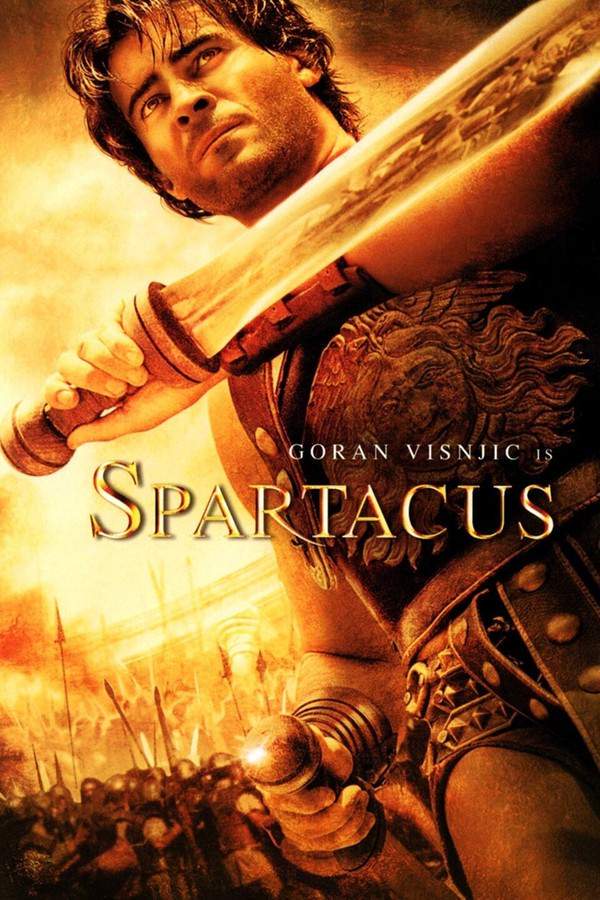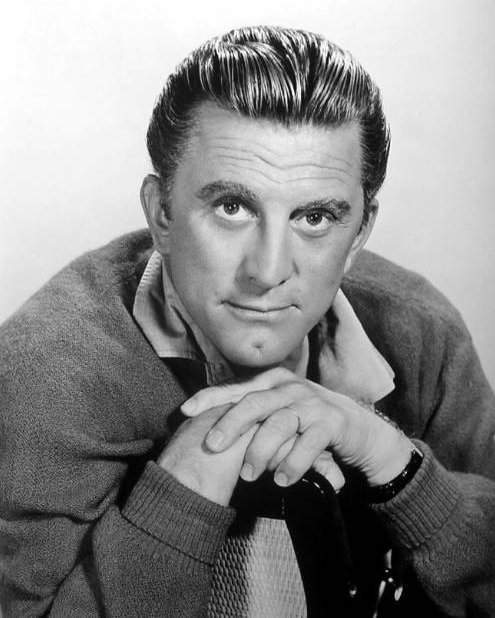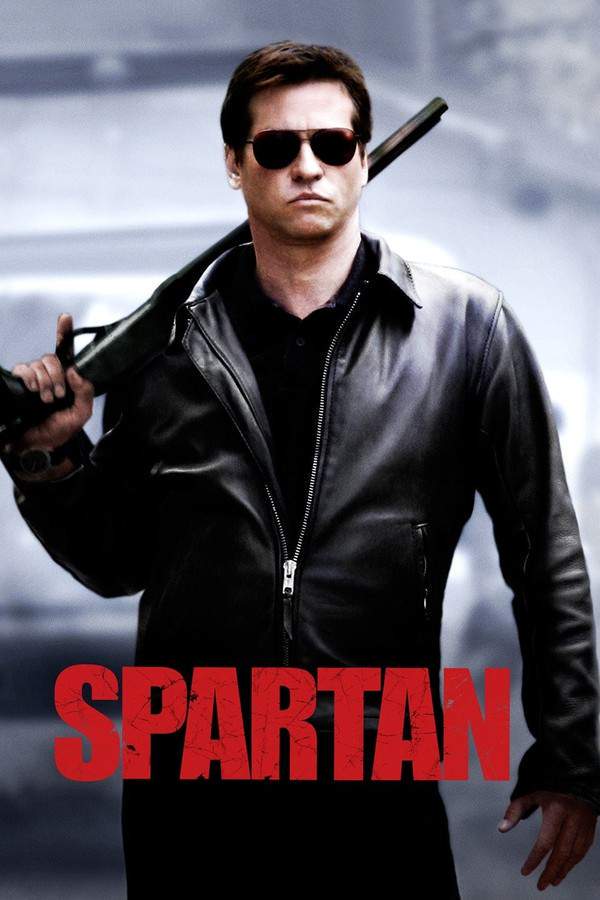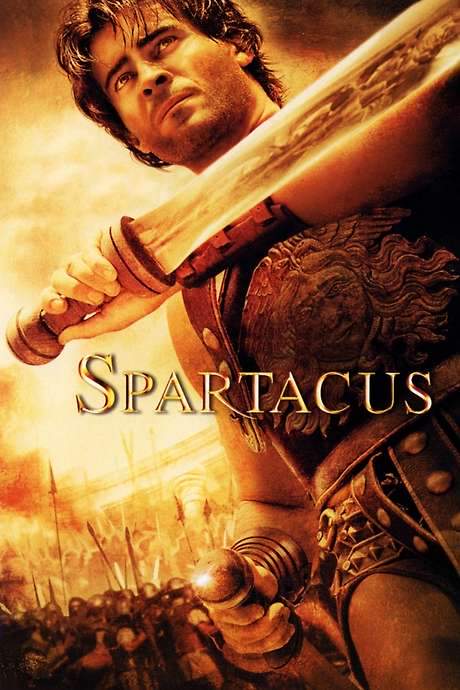Spartacus 1960

A slave named Spartacus endures harsh training to become a gladiator. He ignites a fierce rebellion against the Roman Republic, challenging the authority of the powerful and ambitious Crassus. As Spartacus’s revolt gains momentum, Crassus sees an opportunity to rise in power by brutally suppressing the uprising and crushing the gladiators' fight for freedom.
Does Spartacus have end credit scenes?
No!
Spartacus does not have end credit scenes. You can leave when the credits roll.
Meet the Full Cast and Actors of Spartacus
Explore the complete cast of Spartacus, including both lead and supporting actors. Learn who plays each character, discover their past roles and achievements, and find out what makes this ensemble cast stand out in the world of film and television.
External Links and Streaming Options
Discover where to watch Spartacus online, including streaming platforms, rental options, and official sources. Compare reviews, ratings, and in-depth movie information across sites like IMDb, TMDb, Rotten Tomatoes or Metacritic.
Ratings and Reviews for Spartacus
See how Spartacus is rated across major platforms like IMDb, Metacritic, and TMDb. Compare audience scores and critic reviews to understand where Spartacus stands among top-rated movies in its genre.

87
Metascore
8.1
User Score

7.9 /10
IMDb Rating
Take the Ultimate Spartacus Movie Quiz
Challenge your knowledge of Spartacus with this fun and interactive movie quiz. Test yourself on key plot points, iconic characters, hidden details, and memorable moments to see how well you really know the film.
Spartacus Quiz: Test your knowledge on the epic tale of Spartacus and his fight against oppression in ancient Rome.
Who played the role of Spartacus?
Kirk Douglas
Laurence Olivier
Peter Ustinov
Tony Curtis
Show hint
Awards & Nominations for Spartacus
Discover all the awards and nominations received by Spartacus, from Oscars to film festival honors. Learn how Spartacus and its cast and crew have been recognized by critics and the industry alike.
33rd Academy Awards 1961

Art Direction (Color)
Cinematography (Color)
Costume Design (Color)
Film Editing
Music (Music Score of a Dramatic or Comedy Picture)
14th British Academy Film Awards 1961
Best Film
18th Golden Globe Awards 1961
Best Motion Picture – Drama


Best Supporting Performance in a Motion Picture – Drama, Comedy or Musical (Supporting Actor)
Woody Strode
Best Supporting Performance in a Motion Picture – Drama, Comedy or Musical (Supporting Actor)
Peter Ustinov
Original Score
Full Plot Summary and Ending Explained for Spartacus
Read the complete plot summary of Spartacus, including all major events, twists, and the full ending explained in detail. Explore key characters, themes, hidden meanings, and everything you need to understand the story from beginning to end.
In 73 B.C., during the waning days of the Roman Republic, a vast number of individuals are born into slavery, subjected to the elite patricians and the wealthiest plebeians. Among these is Spartacus, a fierce Thracian slave, portrayed by Kirk Douglas, who endures brutal whippings for his intelligence and rebellion. In a daring act of defiance, he bites a Roman centurion’s ankle while attempting to assist a fellow slave who has stumbled under the weight of heavy rocks. As punishment, Spartacus is bound and left to succumb to the elements, seemingly forgotten. However, fate intervenes when a gladiator trainer named Batiatus, played by Peter Ustinov, acquires Spartacus along with several others to train them in the art of combat at his ludus in Capua. There, Batiatus informs the men that they will be trained to fight to the death, purely for the enjoyment of the wealthy.
The training proves to be as cruel as their life in the mines, with each slave branded and subjected to harsh treatment by the relentless head trainer Marcellus (Charles McGraw). Spartacus attempts to forge a bond with fellow gladiator Draba (Woody Strode), but the fear of having to kill one another prevents them from forming any meaningful alliances. One fateful night, Spartacus is introduced to Varinia, a striking slave woman played by Jean Simmons. Batiatus and Marcellus watch from above as Varinia undresses, but Spartacus refuses to treat her poorly, leading to her immediate removal as punishment.
As time passes, Spartacus’s skills as a gladiator flourish, and his feelings for Varinia deepen despite Marcellus’s futile attempts to keep them apart. The arrival of Marcus Licinius Crassus, depicted by Laurence Olivier, and his entourage ignites further conflict. Crassus, vying for power against another patrician, orders a gladiatorial event to celebrate a betrothal, choosing Spartacus and Draba among the fighters. The event descends into chaos as Draba, unable to bring himself to kill Spartacus, instead attacks Crassus and is brutally killed.
Soon after, Spartacus learns that Crassus has purchased Varinia. Overwhelmed with anger, he violently confronts Marcellus, which sparks a rebellion among the slaves. They manage to overthrow their captors, seizing weapons and forming an army that marches across the countryside, liberating fellow slaves and accumulating strength. This uprising sends shockwaves through Rome, prompting the Senate to respond with outrage. Crassus, absent at the time, faces a political maneuver from Gracchus (Charles Laughton), who plans to send troops against the slave rebels.
As Spartacus’s forces grow, he becomes a beacon of hope for the oppressed, even reuniting with Varinia, who professes her love for him. Meanwhile, in Rome, Crassus learns of his rival’s successful uprising and plans to crush the rebellion. Spartacus, believing that death is preferable to life without freedom, becomes resolute in his mission to attack Rome despite the overwhelming odds.
As both armies prepare for battle, Spartacus’s determination to see his cause through remains unshaken. Just before the final confrontation, he shares a heartfelt moment with Varinia, expressing his wish for their future child to be born free. The ensuing clash is devastating, with Crassus’s seasoned troops ultimately overpowering the rebel forces. In a cruel twist, Crassus offers the survivors a chance at life if they betray Spartacus.
In a powerful moment of solidarity, the slaves, one by one, declare, “I am Spartacus,” opting for death rather than betrayal. Crassus, in a rage, orders their crucifixion along the Appian Way, ensuring their sacrifice is witnessed by all. Varinia, with Spartacus’s newborn son, is taken by Crassus, despite her steadfast loyalty to Spartacus.
As Spartacus awaits his fate, he is faced with the ultimate betrayal of his ideals. In a brutal fight to the death against Antoninus, they both show their unwavering bonds of friendship and loyalty, but Spartacus emerges victorious, leaving Antoninus’s last words hanging in the air. In his final moments, as he is crucified, Spartacus holds onto the hope that his legacy will live on, embodying the thousands who sought freedom. The tragic conclusion sees Varinia catching a glimpse of him on the cross, reinforcing that their bond will never be broken, ensuring that their son will learn of his father’s fight for freedom.
Uncover the Details: Timeline, Characters, Themes, and Beyond!

Coming soon on iOS and Android
The Plot Explained Mobile App
From blockbusters to hidden gems — dive into movie stories anytime, anywhere. Save your favorites, discover plots faster, and never miss a twist again.
Sign up to be the first to know when we launch. Your email stays private — always.
Watch Trailers, Clips & Behind-the-Scenes for Spartacus
Watch official trailers, exclusive clips, cast interviews, and behind-the-scenes footage from Spartacus. Dive deeper into the making of the film, its standout moments, and key production insights.
Spartacus Themes and Keywords
Discover the central themes, ideas, and keywords that define the movie’s story, tone, and message. Analyze the film’s deeper meanings, genre influences, and recurring concepts.
Spartacus Other Names and Titles
Explore the various alternative titles, translations, and other names used for Spartacus across different regions and languages. Understand how the film is marketed and recognized worldwide.
Articles, Reviews & Explainers About Spartacus
Stay updated on Spartacus with in-depth articles, critical reviews, and ending explainers. Explore hidden meanings, major themes, and expert insights into the film’s story and impact.
Similar Movies To Spartacus You Should Know About
Browse a curated list of movies similar in genre, tone, characters, or story structure. Discover new titles like the one you're watching, perfect for fans of related plots, vibes, or cinematic styles.
Quick Links: Summary, Cast, Ratings, More

What's After the Movie?
Not sure whether to stay after the credits? Find out!
Explore Our Movie Platform
New Movie Releases (2026)
Famous Movie Actors
Top Film Production Studios
Movie Plot Summaries & Endings
Major Movie Awards & Winners
Best Concert Films & Music Documentaries
Movie Collections and Curated Lists
© 2026 What's After the Movie. All rights reserved.
































